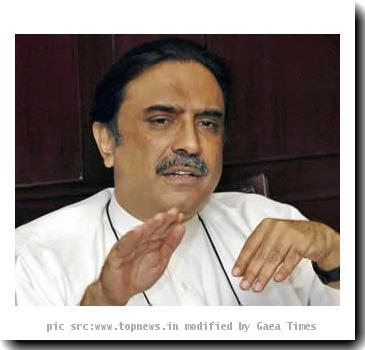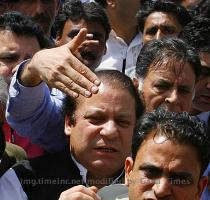Pakistan’s attorney general resigns amid dispute between judges, president over graft cases
By APFriday, April 2, 2010
Pakistan attorney general quits amid graft dispute
ISLAMABAD — Pakistan’s attorney general resigned Friday, accusing the government of preventing him from carrying out Supreme Court orders to reopen old graft investigations into President Asif Ali Zardari.
Anwar Mansoor’s announcement was the latest chapter in a simmering dispute between the judiciary and Zardari that risks destabilizing the government just as Washington wants it to focus on the threat posed by al-Qaida and Taliban militants close to the Afghan border.
The Supreme Court last year struck down a controversial amnesty that had been protecting Zardari and scores of other top officials from prosecution over allegations of corruption dating back several years. Earlier this week, it ordered those cases reopened.
Mansoor said the Law Ministry had been denying him access to documents needed to carry out the Supreme Court order.
“The Supreme Court is our top institution, and there is no way you can defy its orders,” he said after announcing his resignation on the steps of the building in the capital, Islamabad.
Zardari is a major beneficiary of the graft amnesty, which was part of a broader U.S.-backed deal to allow his wife and her political allies to return to Pakistan in 2007 and take part in elections safe from prosecution on charges they have long maintained were politically motivated.
His supporters and many independent experts say Zardari has immunity from prosecution so long as he is president.
The Supreme Court has zeroed in on one case that had been taken up by the Swiss government against Zardari that was halted in 2008 under the amnesty. Zardari and Bhutto were found guilty in absentia in a Geneva court in 2003 of laundering millions of Swiss francs (dollars). They were handed six-month sentences and fined, but both punishments were automatically suspended when they appealed.
On Wednesday, the Supreme Court ordered the government to contact Swiss authorities to reopen the case.
Swiss prosecutors told reporters that this was impossible because Zardari has immunity.
The fireworks in the court this week came as the country’s lawmakers agreed on the draft of a constitutional reform package that would strip the presidency of the power to fire an elected government and reduce it to a more ceremonial role.
The opposition had criticized Zardari for being too slow to relinquish powers accumulated during the rule of his predecessor, Pervez Musharraf, the army chief who took over the government in a 1999 coup. Zardari, used to being on the receiving end of criticism in the media, has been praised for giving up his powers.
The draft was introduced in parliament Friday. It has the support of all major political parties and is expected get the approval of the house when it is put to the vote, the date of which is unknown.
Tags: As-pakistan, Asia, Asif Ali Zardari, Bribery, Graft And Conflicts Of Interest, Islamabad, Nawaz Sharif, Pakistan, Political Corruption, Political Issues, Political Resignations, South Asia

